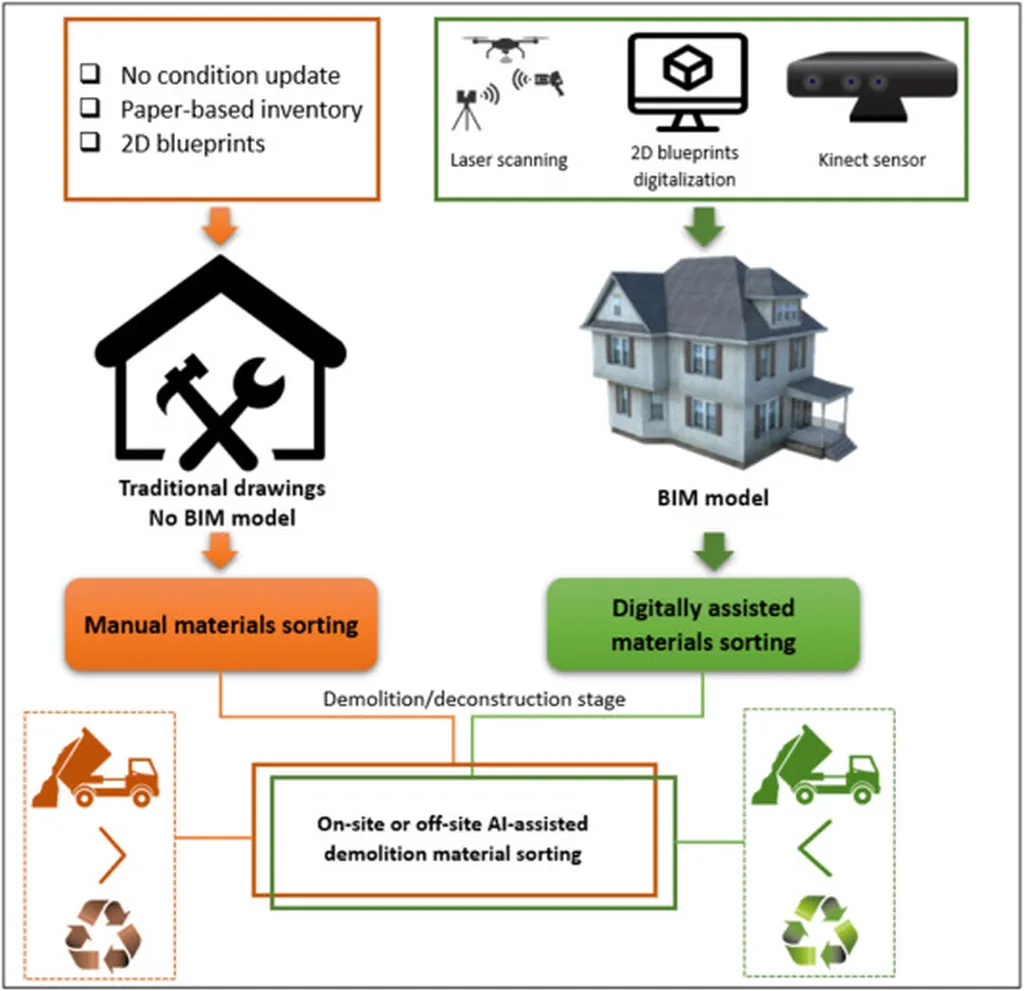In the heart of Europe, a quiet revolution is taking place in the construction industry, one that could significantly impact the energy sector and our approach to sustainable building practices. At the forefront of this shift is Aldrick Arceo, a researcher from the École Polytechnique Fédérale de Lausanne (EPFL), who has spearheaded the creation of the Digital Inventory for Swiss Construction Systems (DISCS). This innovative database is set to transform how we predict and utilize reusable components in construction, a critical step towards a circular economy.
The construction sector has long been a significant consumer of raw materials and energy. However, with the growing emphasis on sustainability, there’s an urgent need to move away from linear, wasteful practices towards circular economy models. Arceo’s work addresses a crucial gap in this transition: the lack of detailed data on the geometric attributes, material properties, and assembly modes of components in existing buildings.
DISCS is more than just a database; it’s a comprehensive structure that provides granular data for 102 buildings in Switzerland. Each building has been digitalized into a building information model and parameterized using a custom library of 78 attributes. This level of detail is unprecedented and offers a solid foundation for predicting the availability and qualities of reusable components.
“The potential of this database is immense,” Arceo explains. “It’s not just about knowing what materials are available, but understanding their properties and how they can be reused in new projects. This is a game-changer for the construction industry and the energy sector.”
The implications for the energy sector are particularly noteworthy. By facilitating the reuse of components, DISCS can help reduce the energy and resources required for new construction. This aligns with the sector’s goals to minimize its environmental impact and improve energy efficiency.
Moreover, DISCS provides a basis for stock prediction, enabling stakeholders to plan and design new projects with a focus on component reuse. This could lead to significant cost savings and reduced waste, further enhancing the commercial viability of sustainable construction practices.
Arceo’s work, published in the journal ‘Scientific Data’ (translated to English as ‘Scientific Data’), is a testament to the power of data in driving sustainable practices. As the construction industry continues to evolve, the insights gleaned from DISCS could shape future developments, paving the way for a more circular and sustainable built environment.
In a world grappling with climate change and resource depletion, innovations like DISCS offer a beacon of hope. They remind us that with the right tools and data, we can build a future that is not only sustainable but also resilient and efficient. The journey towards a circular economy in construction has begun, and DISCS is a significant milestone along the way.

